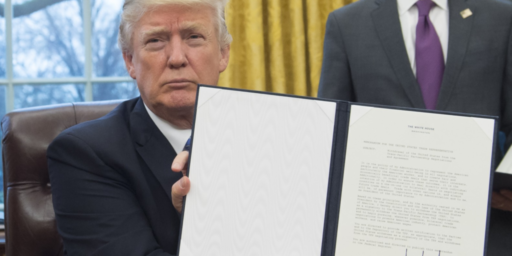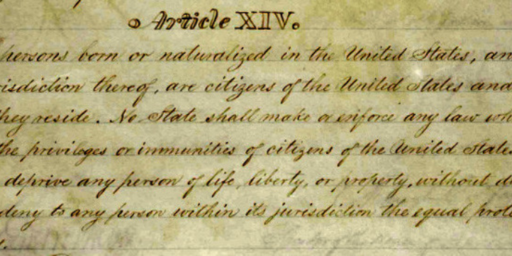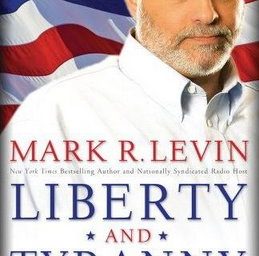Judge Bork’s Inkblot
Glenn Reynolds has five intriguing questions for John Roberts in today’s New York Times.
1. The Ninth Amendment provides that “the enumeration in the Constitution, of certain rights, shall not be construed to deny or disparage others retained by the people.” Do you believe that this language binds federal courts, or do you believe – as Robert Bork does – that it is an indecipherable “inkblot?” If the former, how are federal courts to determine what rights are retained by the people? On the other hand, if the Ninth Amendment does not create enforceable rights, what is it doing taking up one-tenth of the Bill of Rights?
Bork is essentially correct because, absent enumeration, enforcement of this Amendment would allow judges to simply decide for themselves which “others” are “retained by the people.”
The Amendment is included because James Madison and others feared that, once certain rights were listed in the Constitution, it would eventually be presumed to be exhaustive. That’s why the original Constitution left them out. The presumption was to be in the other direction: Unless Congress was specifically empowered to act on something, it was prohibited from doing so. The Bill of Rights were a necessary compromise solution that came up during the ratification struggle.
2. Justice Joseph Story wrote in 1833 that “since the American Revolution no state government can be presumed to possess the transcendental sovereignty to take away vested rights of property; to take the property of A and transfer it to B by a mere legislative act.” Was Story wrong? Or was the Supreme Court wrong this year when it ruled in Kelo v. the City of New London that a government had the right to take property for the use of private developers?
The Court was horribly, horribly wrong in Kelo.
3. Could a human-like artificial intelligence constitute a “person” for purposes of protection under the 14th Amendment, or is such protection limited, by the 14th Amendment’s language, to those who are “born or naturalized in the United States?”
Theoretically, yes, if that lifeform acquired sentience. “Personhood,” though would be a matter for the legislature to confer, not the courts. Presumably, artificial life can not be “born.” Congress could, however, confer naturalized citizenship on them.
4. Does a declaration of war by Congress have the effect of suddenly making proper actions by the executive and Congress that would otherwise have been beyond their constitutional powers?
In terms of domestic powers? According to the Constitution, no. According to a century and a half of practice and judicial precedent? Yes.
5. Is scientific research among the expressive activities protected by the First Amendment? If not, is Congress free to bar research based solely on its decision that there are some things we’re better off not knowing?
Scientific research per se is not protected by the First Amendment. Read it; it’s only one sentence:
Congress shall make no law respecting an establishment of religion, or prohibiting the free exercise thereof; or abridging the freedom of speech, or of the press; or the right of the people peaceably to assemble, and to petition the Government for a redress of grievances.
Let’s assume, for the sake of argument, that science is not a religion. Congress has no authority, then, to regulate the speech, writing, or gathering of scientists. So, no, Congress can’t ban an idea because it prefers to limit the knowledge–although it has some very limited authority in the case of classified information related to national security.
To the extent experimentation is required, though, Congress has the authority to ban that conduct for legitimate public policy reasons. It could, to take some current controversies, ban the cloning of human embryoes or particular forms of animal experimentation they deem inhumane.






Mr Reynolds may have five questions that he and undoubtedly others think they have to have answered, but, in the end and at the end of the day, a Supreme Court Judge is going to rule on what he and he alone thinks. Just look an Sutor, Ginsburg and other Supreme Court and Federal Court judges have done over that past few years. They have made rulings that have suited their own agendas with a “to hell with you attitude”.
We have all seen legislation from the bench by Federal Court Judges and a Supreme Court, that has all the appearances of a rubber stamp, let these legislative decisions stand without question. I do not have confidence that the Supreme Court has the interest of the American people at heart. Now we will all witness a charade in the hearings with questions put to a nominee by Senators that they themselves are both personally, professionally, and ethically questionable. Many thousands of taxpayer dollars will go so that a few of these questionable Senators can get their tidbits of partisan wisdom and their faces on national television. We will also witness, at the end of these so called hearings, what a great job that we as Representatives of the people have done for us.
And so, at the end of it all, we will have a new Chief Justice that neither you, I or any ordinary American Citizen had any input that would make any difference to the Senate or the Supreme Court Judges on what we think as Americans. The questions Mr Reynolds raises are and would be nothing more than “just words”
In terms of domestic powers? According to the Constitution, no.
Beg to differ, James. There are several places where the powers of government are altered in times of war.
Article I, Section 9, Clause 2:
The Privilege of the Writ of Habeas Corpus shall not be suspended, unless when in Cases of Rebellion or Invasion the public Safety may require it.
Article I, Section 10, Clause 3:
No State shall, without the Consent of Congress, lay any Duty of Tonnage, keep Troops, or Ships of War in time of Peace … or engage in War, unless actually invaded, or in such imminent Danger as will not admit of delay
Amendment III.
No soldier shall, in time of peace be quartered in any house, without the consent of the owner, nor in time of war, but in a manner to be prescribed by law.
Amendment V.
No person shall be held to answer for a capital, or otherwise infamous crime, unless on a presentment or indictment of a grand jury, except in cases arising in the land or naval forces, or in the militia, when in actual service in time of war…
I am not, of course, claiming that Congress and the President have never acted unconstitutionally during times of war. They quite evidently have, as when Wilson imposed severe restrictions on freedom of speech and the press during the First World War. That the Constitution does give the government some extraordinary war powers does not mean that it gives the government unlimited war powers.
Kent:
Fair enough, although none of those happen “suddenly” but rather require additional steps. None of them are particularly “extraordinary,” either. The only exception is the suspension of habeus corpus, but that’s only for soldiers.
“the enumeration in the Constitution, of certain rights, shall not be construed to deny or disparage others retained by the people.”
Not sure why this one is so hard for people to understand. At the federal level there are a series of rights enshrined into the constitution. If a state were to legislate that an accused facing a death penalty had a right to a second attorney, the fact that the “second attorney” right is not in the federal list does not preclude it from being enforced.
I read it as “this list does not prevent new rights from being created by appropriate legislative bodies”. “By the people” means, to me, a consensus legislative action, through normal channels of democracy.
But that’s just a lay opinion…I’m sure there’s something very complicated that lawyers would like to argue about.
James,
I mean “extraordinary” in the narrow technical sense of “not ordinary.” The powers in question are not ordinarily granted to the government.
I agree that habeas corpus is the only one of the war powers that would be regarded as extraordinary in the colloquial sense.
>I read it as “this list does not prevent new
>rights from being created by appropriate
>legislative bodiesâ€Â.
This renders the Ninth into useless fluff though. If unemnumerated rights only exist as defined by state legislatures, then there’s no such thing as a law which impinges on those rights. So them ammendment is useless interms of a judicial discriminator of constitutionality.
“By the people†means, to me, a consensus legislative action, through normal channels of democracy.
So then your interpretation of the second ammendment is that it grants Congress a right to carry arms, but not any individual citizen?
I interpret the ninth as establishing a burden of proof. When the government passes a law, it’s their legal burden to prove they’re NOT violating the rights of the individual, not the individual’s burden to prove that they are. The federal government cannot restrain an individual without showing how such restraint is necessary to perform one of its enummerated powers. The enumerated rights, on the other hand, provide an even higher level of protection–the government cannot broach them even if it interferes with one of it’s duties.
Isn’t the 9th really relevant when it comes to the right of privacy? the right of privacy is not listed in the constitution, but wouldn’t the 9th mean that the government can not deny it?
so it really gets into the abortion issue.
One of the many things I am not an expert on is law. I have, however, come to the conclusion that KELO v. New London CT more easily facilitates the confiscation of private property.
def.Confiscation (in dictionary .com ) To seize (private property) for the public treasury.
Has anyone considered that maybe property such as: music, writing, art, or patents, can also be used to better benifit the government agency? What is to stop a government (under Kelo)from grabbing such properties? I know I’m probably off base, but I would like to hear from a more enlightened person as to the fine points showing why or why not this is possible.
Bork is essentially correct because, absent enumeration, enforcement of this Amendment would allow judges to simply decide for themselves which “others” are “retained by the people.”
I think Bork is horribly wrong here. The Constitution describes the powers of government, not the rights of people. Our rights are an endowment (from the Creator, if you wish) that are inherint in our status as free men and women. Free people can grant to their government certain powers to restrict our rights, necessary to establish an orderly society – within the context of the general powers listed in the Constituion. All other rights, enumerated or not, – any right that you can imagine, are retained by the people.
The burden is on the government to secure power to limit rights through the democratic process, so long as those powers are consistent with the general grant of power in the Constitution.
The result is that judges CAN identify heretofore undescribed rights. Anyone who understands and cherishes individual freedom should applaud them whenever they do so.
The people have rights not enumerated in the Constitution that judges can discover in the course of limiting government power. The whole document should be read as a specific enumeration and general limitation of government power. It recognizes the need for a strong and active federal government, but also recognizes that such a powerful government can endanger individual liberties. Judges have been correct in finding a right to privacy. The dilemma of abortion lies in the conflict between the woman’s right to choose and the unborn child’s right to life. Ideally, drawing the line between conflicting rights should be the legislature’s job.